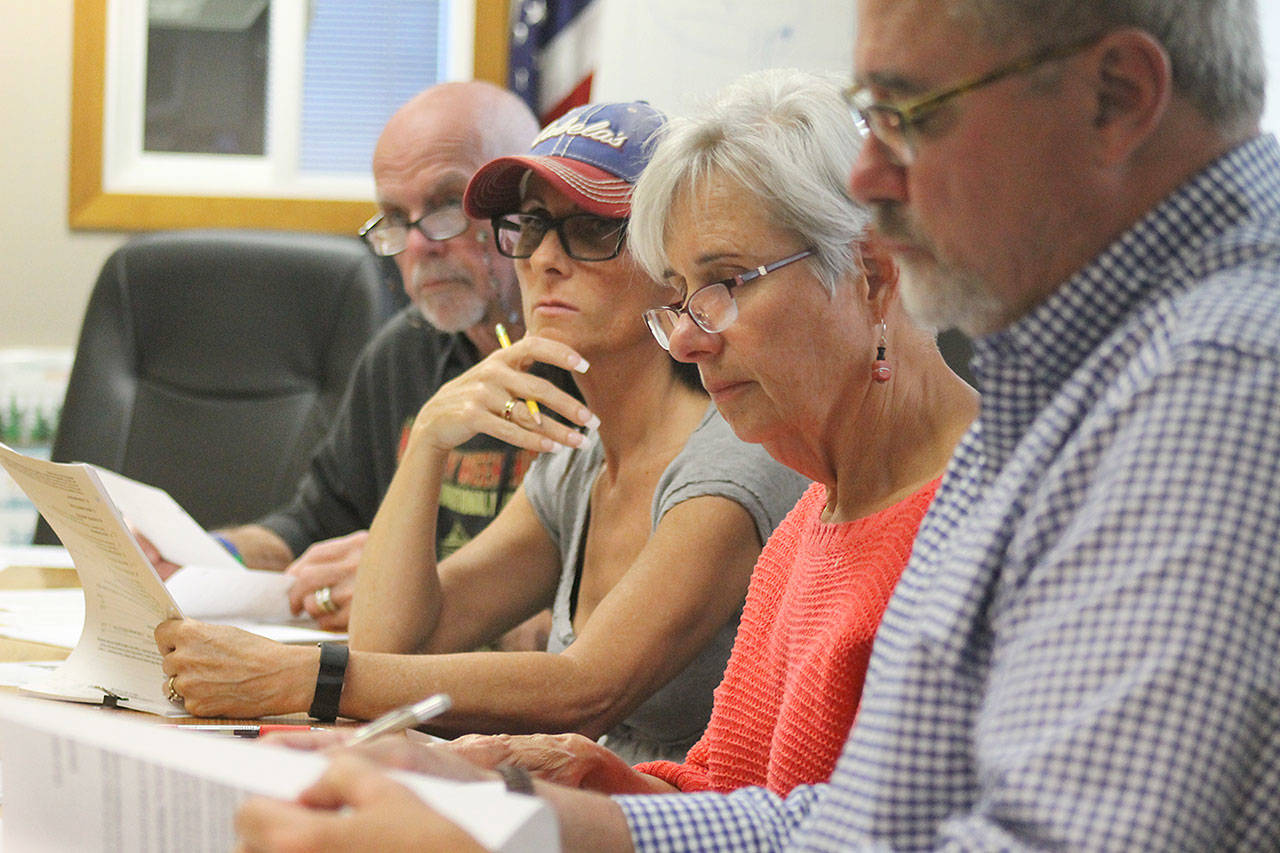Langley’s long debated inclusive city ordinance appears to be dead.
The city council voted 2-1 to indefinitely table the proposal at its regular monthly meeting on Monday night. Council members Bruce Allen and Ursula Shoudy voted to shelve the ordinance, while Councilwoman Dominique Emerson wanted to keep it afloat.
Councilman Burt Beusch, who was appointed earlier in the meeting, recused himself and Councilman Thomas Gill was not present due to health problems.
Allen told The Record after the meeting that he was relieved the ordinance was put to rest.
“We don’t need it, I’ve told you that a hundred times,” Allen said. “It’s been my thought since it came up. There’s no reason for us to get excited about it.”
He does, however, expect the issue will continue to come up at future council meetings as long as there are advocates who want to see Langley adopt an inclusive city ordinance.
“I don’t think it’s really dead,” Allen said. “Those people that were here tonight are bound and determined to bring it up again, I’m sure.”
Shoudy said her decision was based on the wishes of her constituents, private citizens and business owners who voiced their opposition to the ordinance in conversations with her.
“I have to stick with my gut of what a tremendous amount of people were saying to me in the community,” she said.
The ordinance proposed to limit the city’s cooperation in the national government’s effort to enforce federal immigration laws. The decision caps nearly eight months of public discussion by the council and the community. Though it’s been a divisive issue since the beginning, the ordinance passed with little discussion by the council.
A first reading of the ordinance was anticipated entering the meeting. But, Allen motioned for the document to be moved to a second reading and not approved. Shoudy seconded. The move drew confusion from Emerson, who questioned the purpose of moving it to a second reading before a first reading was made. Mayor Tim Callison explained that it was within a council member’s rights to request the unusual step, and it became official with Shoudy’s second.
The city uses a two-step system to approve new ordinances. Proposed laws undergo two readings before they’re adopted, but the second step can be waived with a majority vote.
The meeting began with some fireworks. Allen, frustrated with the amount of time the topic has taken up since it was first introduced in November 2016, asked that any public comments in regards to sanctuary cities not be allowed. It drew questions from both a city council member and a man in the audience.
“Why would you do that?” Emerson asked.
John Graham, a member of Inclusive Langley, complained that Allen’s motion was “undemocratic” and “unconstitutional.” Callison quickly intervened by using his gavel to silence Graham’s interjection.
“It’s not for members of the audience to participate at this point,” Callison said.
Shoudy and Emerson did not second Allen’s motion.
A few advocates turned out to voice their support for the ordinance. Fran Abel and Ursula Roosen-Runge of advocacy community group Inclusive Langley were displeased with the political process surrounding the sanctuary city discussion. They also complained that the city was not transparent and that the city attorney has provided political opinions as opposed to legal advice.
Graham echoed Abel and Roosen-Runge’s sentiments, but also asserted that there will be a community effort to uproot elected officials who opposed the ordinance from their seats.
“The pro forces will work hard all summer and fall to make sure no one who opposes a meaningful inclusive city ordinance will ever again serve an elected position here,” Graham read from a prepared statement. “We want a blue government in this blue town.”
He reemphasized that commitment in an email to The Record following the meeting.
“The fight to take our town back is just beginning,” he wrote.



